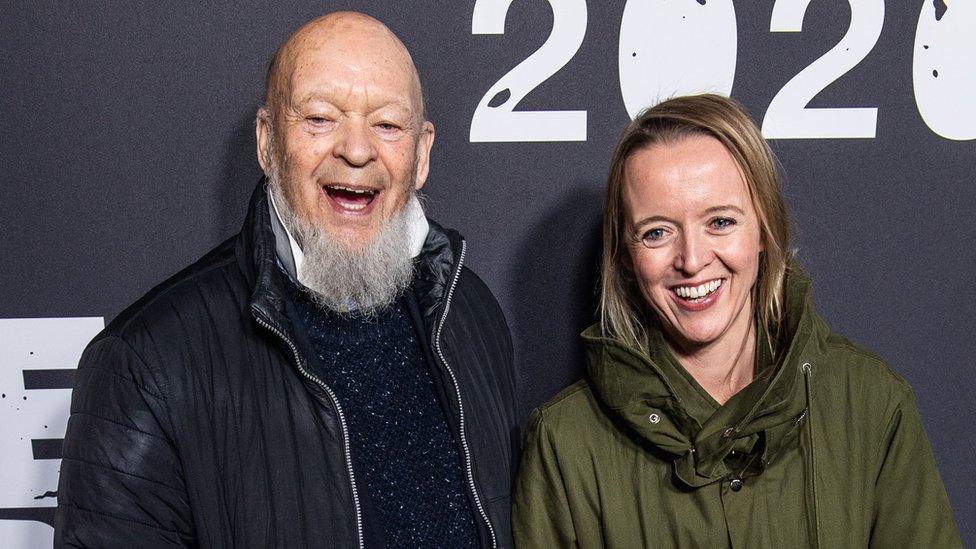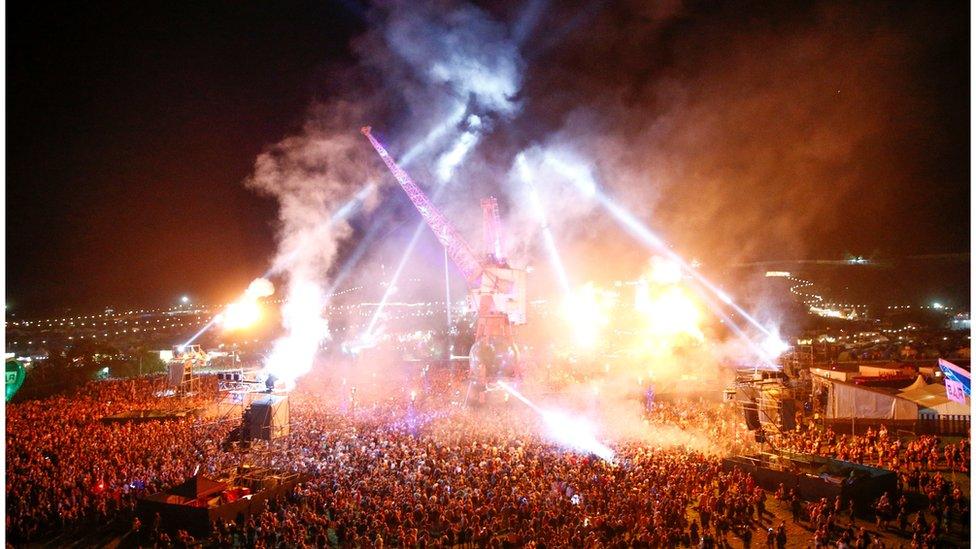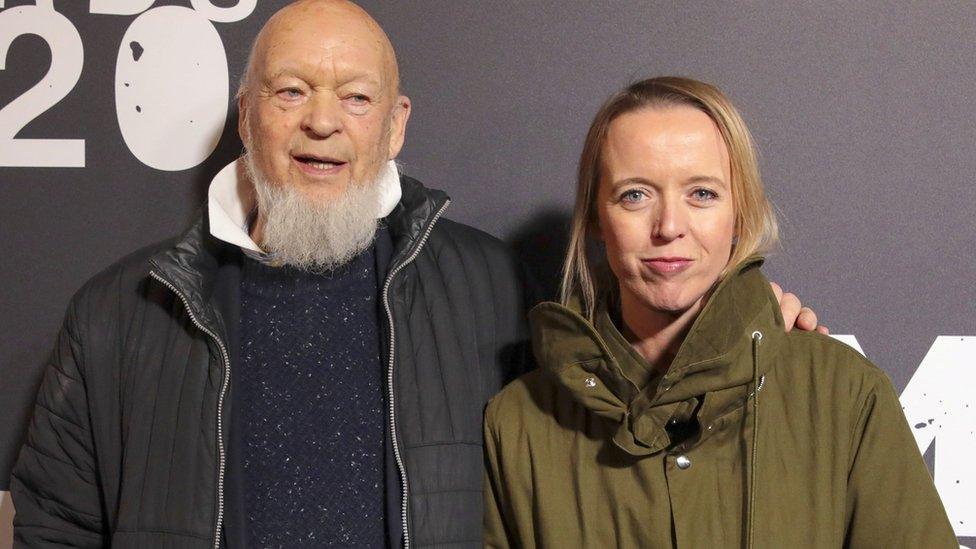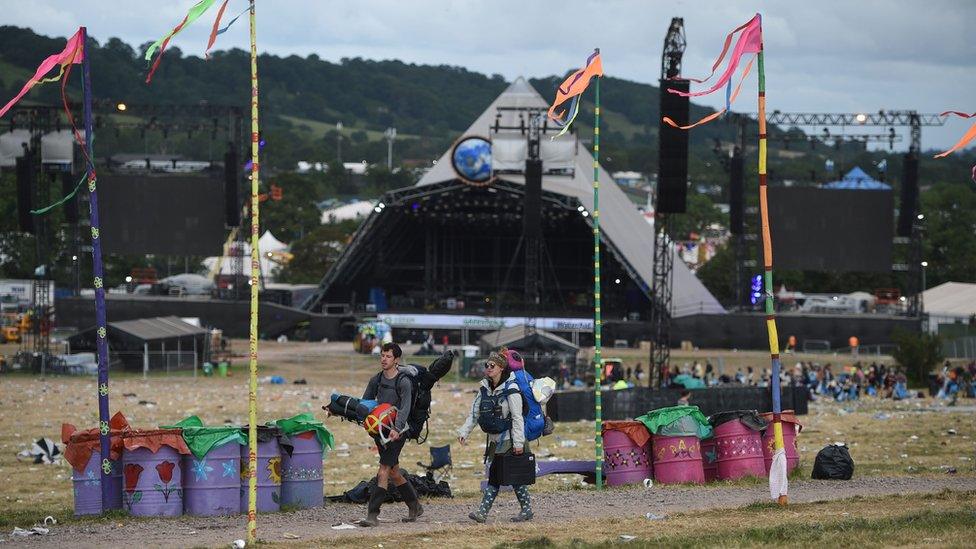Emily Eavis hopes for live-streamed Glastonbury
- Published

Emily Eavis runs Glastonbury alongside her father Michael
Emily Eavis says Glastonbury could put on a live-streamed event, after the festival was cancelled for a second year, due to the Covid-19 pandemic.
"A lot of big artists have been in touch offering to perform for us at the farm," she told The Guardian, external.
"We would love to build a show that can be watched at home by people all over the world."
She denied the festival was facing bankruptcy, but said a virtual event would provide some "welcome income".
Glastonbury was the first major festival to pull the plug at the start of the lockdown last year, losing about £5m.
However, planning and construction was already underway at that stage, Eavis said. This year's losses will not compare.
Eavis has been among those calling for a government-backed insurance scheme, which would offer events some kind of support in the event of cancellation.
Last week, MPs from the House of Commons Culture Select Committee wrote to the chancellor, urging him to launch such a scheme. The committee's chair, Julian Knight MP, told BBC Radio 1's Newsbeat that there had been progress on the matter this week.
"I've been in to see the chancellor," he said. "Finally I think there is some movement. I understand that they are dropping some of the objections that they may have had, and that we may end up with an insurance scheme.
"However, there's a danger that it's too little too late."
Eavis dismissed reports that Glastonbury had been forced to cancel over insurance, saying the situation was more complicated.
She said the decision had incorporated "everything from restrictions on public transport capacities to availability of the medical staff we need to work at the event, to the simple fact that mass gatherings are currently still legally prohibited and it's not at all clear when that will be reversed".
With a capacity of more than 200,000, Glastonbury the world's largest greenfield event, and its sprawling, multi-stage site takes longer to construct than most other festivals.
On Friday, several other events, including Glasgow's TRNSMT and the family-run Nozstock in Herefordshire said they were still pressing ahead with plans for this year.
Speaking to BBC Breakfast, the head of the Association of Independent Festivals said this summer's season is "still possible" if the government ensures organisers can access cancellation insurance.
"For most festivals, the cut-off point is more likely the end of March."

Follow us on Facebook, external, or on Twitter @BBCNewsEnts, external. If you have a story suggestion email entertainment.news@bbc.co.uk, external.
Related topics
- Published22 January 2021

- Published16 December 2020

- Published21 January 2021
